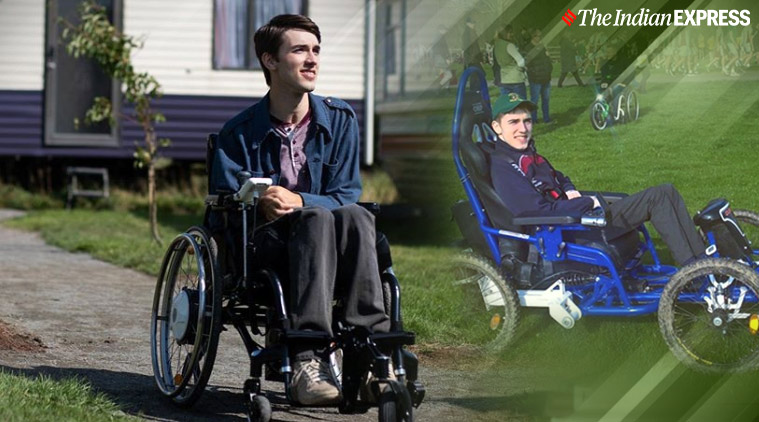As the new season rolls out, Isaac's character has gained a lot of popularity as we see his ambiguous morality coming between Maeve Wiley (played by Emma Mackey) and Otis's (Asa Butterfield) love story.

Netflix dropped the second season of Sex Education and the quirky schoolkids are back to entertain binge-watchers. Covering molestation, homosexual stereotypes, divorces, love and unwanted pregnancy, the fresh installment of the series definitely has some power-packed performances. Isaac’s character has gained a lot of popularity as we saw his ambiguous morality coming between Maeve Wiley (played by Emma Mackey) and Otis’s (Asa Butterfield) love story.
However, spoilers apart, the introduction of a disabled character has surely stirred some buzz. But not many of us know that George Robinson who plays Isaac is a real life paraplegic. According to Elle, Robinson suffered from a spinal injury while playing rugby in 2015. RadioTimes reports that he put his studies on hold at Birmingham University to appear in the show.
squint
A post shared by George Robinson (@georgerossrobinson) on Jul 3, 2019 at 10:07am PDT
squint
A post shared by George Robinson (@georgerossrobinson) on Jul 3, 2019 at 10:07am PDT
physio is going well ????
A post shared by George Robinson (@georgerossrobinson) on Jul 22, 2016 at 11:08am PDT
Robinson was said to be on a school trip with his rugby team in South Africa when he met with an accident. Reportedly, he was in the hospital for around 37 days and a further five weeks in Addenbrookes hospital in Cambridge, from where he went to the Princess Royal Spinal Unit in Sheffield.
What is paraplegia?
Paraplegia is a spinal cord injury where the lower limbs get paralysed, resulting in severe damage to the spinal cord and the nervous system. It mainly affects the trunk, legs and pelvic region, resulting in loss of movement.
The common causes of paraplegia are an accident, severe spinal cord injury, motor neuron diseases, cancerous cell growth and spina bifida. They are generally categorised in two types — complete paraplegia and incomplete paraplegia. Complete paraplegia causes damage in the neurological level and hinders the movement of limbs whereas incomplete paraplegia allows some movement in the limb.
For all the latest Lifestyle News, download Indian Express App
Source: Read Full Article


